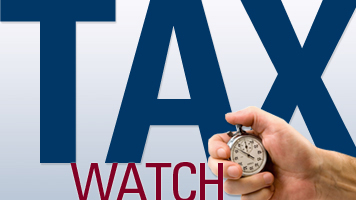
A visit by the Treasury Secretary to discuss the fiscal cliff left GOP leaders frustrated, as the president says he will only extend tax breaks for the middle class.
Treasury Secretary Makes No Progress on Facilitating Fiscal Negotiations
A much-anticipated visit to Capitol Hill on November 29 by Treasury Secretary Timothy F. Geithner to discuss the fiscal cliff in separate meetings with Republican and Democratic leaders left GOP leaders frustrated as the Obama Administration continues to press its demand to first extend the Bush-era tax breaks for only the middle-class as a down-payment to reduce the deficit.
House Speaker John Boehner, R-Ohio, expressed "disappointment" after the meeting, saying he had hoped to see a specific plan for cutting spending.
"Listen, this is not a game. Jobs are on the line. The American economy is on the line," said Boehner. Despite what he termed a "frank and direct" meeting, he said "no substantive progress has been made in the talks between the White House and the House over the last two weeks."
Geithner reportedly proposed $1.6 trillion in tax increases, $400 billion in spending cuts, and a more permanent increase in the debt ceiling. Boehner rejected the offer.
The impasse has done little to soften party lines among congressional leadership, but the confidence of Democrats appears to be increasing.
"They're not going to openly concede on this point this far out from the deadline, but they see the handwriting on the wall," said Senate Democratic Policy Committee Chairman Charles E. Schumer, D-N.Y., who predicted a resolution before Christmas.
"Now is the time for the Republicans to move past this happy talk about revenues, ill-defined, of course, and put specifics on the table. The president has made his proposal; we need a proposal from them," stated Senate Majority Leader Harry Reid, D-Nev., after his meeting with Geithner.
White House offer
According to an unofficial copy of the White House offer to Boehner, the president’s plan would raise $960 billion over 10 years by increasing the top two marginal tax rates, as well as rates on capital gains and dividends. Another $600 billion would be raised by capping deductions. The offer also reportedly includes setting estate taxation at 2009 levels and extending bonus depreciation. The proposal also calls for alternative minimum tax relief at a cost of $236 billion, and an extension of payroll tax relief at $110 billion.
Spending initiatives in the plan include a $50 billion stimulus package in 2013, mortgage refinancing, deferral of the pending budget sequester, savings from nonentitlement mandatory programs, $30 billion in unemployment insurance benefits, and $25 billion to extend Medicare physician payment rates. In 2013, tax reform would include $1.6 billion in new taxes with entitlement savings of $400 billion, according to the offer.
GOP position
Democrats pointed out that some Republicans appear to be breaking ranks as they have publicly backed extending the middle-class tax cuts.
"I'm glad to see there are some reasonable Republicans breaking from the pack," said Reid, referring to recent statements by some House GOP members on having a vote in the House on those tax cuts. Schumer said Republican leaders are proposing certain aspects of the negotiations to Republican rank-and-file members as victories in order to cushion the landing on taxes.
"They're trying to figure out their rationale now that they realize in their heads they're going to have to agree with our position," said Schumer.
The White House also dug in its heels, reiterating that the president will not sign any bill that does not increase tax rates on the top 2 percent of income earners.
"The president will not sign any legislation that extends the Bush-era tax cuts for top earners in this country," said White House spokesperson Jay Carney during his daily press briefing.
Boehner declined to detail what types of spending cuts he would like the president to consider as part of negotiations with House and Senate leaders. He said all parties have agreed to a framework that includes a down-payment of spending cuts and new revenues by the end of 2012 that would set up a process for entitlement and tax reform next year. He repeated his requirement that any increase in the federal debt limit must be accompanied by spending reductions that meet or exceed it.
On top of all the pessimistic rhetoric streaming from the Capitol is the latest statement made by the co-chairman of the president’s 2010 deficit commission, Erskine Bowles, following a meeting with congressional leaders on November 28. Bowles estimated the odds for avoiding going over the fiscal cliff as less than one in three.
"I believe the probability is we’re going over the cliff," said Bowles.
©2012 CCH. All Rights Reserved.
